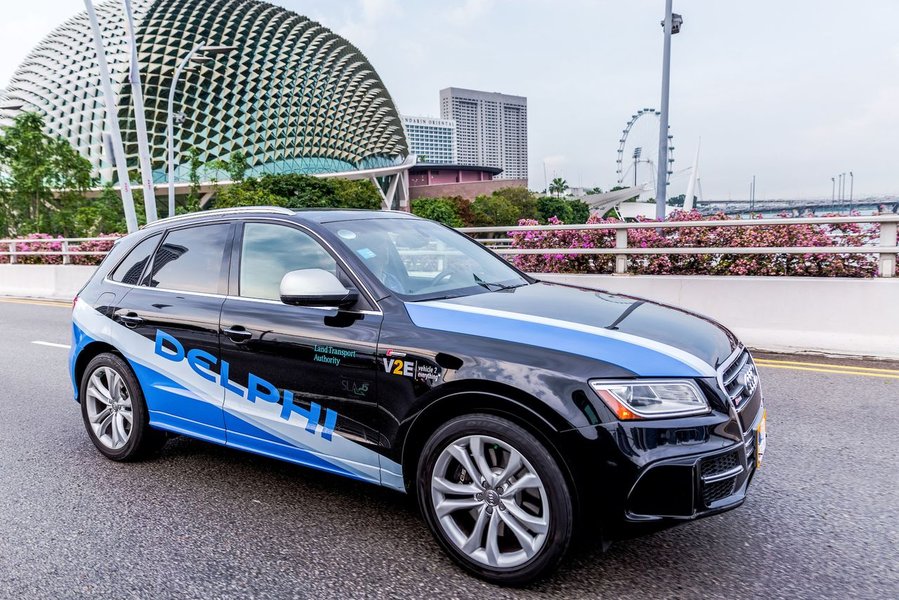Delphi launches autonomous car test program in Singapore

The pilot program will consist of three routes totaling about five miles. The first vehicle is an Audi SQ5, while the rest of the initial field of four to six cars will be electric vehicles, which Delphi will modify. The project will start with "safety drivers" behind the wheel, but the goal is to move to driverless rides. The program will run from 2016 into 2019.
"This actually puts it on the ground in a functional way," said Glen De Vos, vice president of Delphi's services business unit. "We think it's important not only for Delphi, but the industry."
By 2022, the system could be ready for more widespread use. Additional pilot programs will be announced in North America and Europe later this year. The Singapore project will be an on-demand service operating within a business park.
Delphi's autonomous system uses cameras, lidar, and radar. The company has internal mapping technology, but will eventually look to use an outside vendor. The tests will be relatively low-speed, averaging 25 miles per hour.
Delphi is aiming for leadership in the autonomous field. Another Audi SQ5 it modified completed an automated drive spanning 3,400 miles from San Francisco to New York in 2015. The technologies tested in Singapore could be used for its other customers, including major automakers. They could also be adapted to buses, commercial vehicles, or a future mobility pod beyond the traditional car.
Eventually, purpose-built pods might not require a steering wheel and could have specially designed ways to enter and exit, De Vos said. Maps to show the route and other passenger-friendly features could be considered. Delphi hasn't decided if it wants to build an entire autonomous vehicle.
The company wants the project to inform consumers about self-driving cars to better understand the long-term possibilities. "It's a nascent kind of technology," De Vos said. "How do you feel about being driven around?"
Delphi secured the project through the Singapore Land Transit Authority. Terms of the deal were not specified.
Related News


